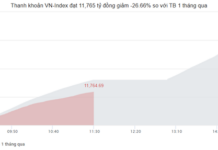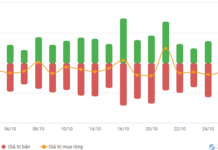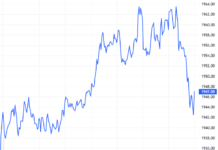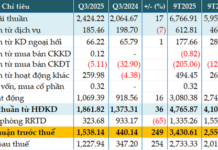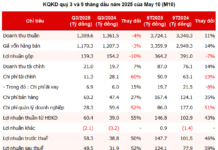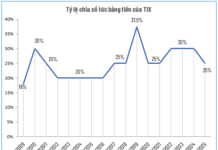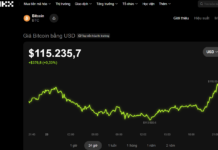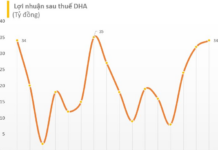The Ministry of Finance has proposed taxing all alcoholic beverages, fermented foods made from fruits and grains, and cocktails in its Report on the Draft Amendment to the Special Consumption Tax Law submitted to the Government.
THE DRAFT LACKS BALANCE
The Ministry of Finance proposed two options for calculating special consumption tax on beer and liquor.
Option 1: The special consumption tax on beer and liquor over 20 degrees will increase from 2026 to 70%; 2027 to 75%, and by 5% annually thereafter until 2030, reaching 90%. For alcohol below 20 degrees, the tax will increase to 40% in 2026 and by 5% annually until 2030, reaching 60%.
Option 2: The special consumption tax on beer and liquor over 20 degrees will increase to 80% in 2026 and by 5% annually until 2030, reaching 100%. For alcohol below 20 degrees, the tax will increase to 50% in 2026 and by 5% annually until 2030, reaching 70%. The Ministry of Finance favors Option 2.
At the workshop “Draft Amendment to the Law on Special Consumption Tax and the Beverage Industry” held by the Vietnam Chamber of Commerce and Industry (VCCI) and the Vietnam Beer-Alcohol-Beverage Association, Dr. Can Van Luc, Chief Economist of BIDV and Member of the National Financial-Monetary Policy Advisory Council, analyzed the global economic downturn and slow recovery after the COVID-19 pandemic. He noted that the international business environment is fraught with risks and uncertainties, significantly impacting Vietnam’s deeply integrated and open economy.
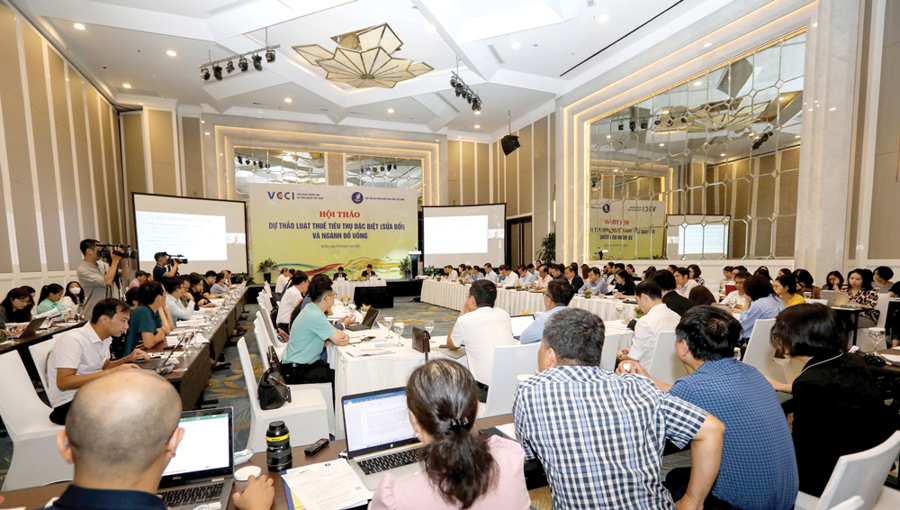
In addition to these shared challenges, beverage businesses also face unique difficulties. They do not benefit from the VAT support policy (a 2% reduction) for alcoholic beverages, and they are affected by Decree 100/2019/ND-CP on administrative sanctions for alcohol concentration violations. They also face rising costs and raw material prices, up to 40%; complex issues with contraband, counterfeit, and unstamped alcohol and beer; and changing consumer lifestyles and behaviors, requiring adaptation from the industry.
The beverage industry’s average profit has continuously declined (by 12% in 2021, 6% in 2022, and an estimated 10-12% in 2023 compared to the previous year).
Dr. Luc expressed that the Draft Amendment to the Law on Special Consumption Tax may increase short-term state budget revenue but could reduce medium and long-term consumer demand, business revenue, and profits, thereby reducing VAT and corporate income tax revenue. Therefore, the overall impact on tax revenue is unclear.
Regarding sugary drinks, he questioned whether increasing taxes would effectively reduce obesity and cardiovascular disease rates, as there are other contributing factors. He also emphasized that raising special consumption taxes on sugary drinks may not influence the intended behavioral change and could lead to a shift towards other sugary beverages, potentially exacerbating obesity and cardiovascular issues from a different perspective.
A sharp and rapid increase in special consumption taxes on alcoholic beverages could impact long-term contributions to the state budget and create a “difficulty upon difficulty” situation for businesses, employees, and related industries (such as packaging, transportation, tourism, and catering). Furthermore, the draft lacks differentiation regarding alcohol content and fails to effectively regulate consumer behavior.
THE NEED FOR A SUITABLE ROADMAP
According to Mr. Dau Anh Tuan, Vice Secretary General and Head of the VCCI Legal Department, tax laws significantly impact various industries, with the beverage industry being directly and severely affected by the current draft law. While fulfilling tax obligations is necessary, it should be done reasonably and convincingly, linked to business efficiency.
Mr. Tuan emphasized the need for a suitable roadmap to ensure stable business operations and questioned whether the proposed tax rates are based on scientific arguments and comprehensive considerations. He asked, “What is the goal of imposing these taxes? Will it increase state revenue, reduce consumption, improve public health, or have implications for employment and industry competitiveness?”
Dr. Luc concurred, stressing the importance of clarifying the purpose of the tax increase: to boost revenue or regulate consumption. He advocated for ensuring principles of interest, responsibility, and feasibility and conducting more thorough scientific and practical evaluations.
Diversifying revenue sources is essential, but it should not be at the expense of over-taxing. Instead, the government should nurture revenue sources. Dr. Luc recommended a comprehensive and thoughtful impact assessment to guide the selection of the most suitable amendment direction, considering Vietnam’s economic context and balancing the interests, responsibilities, and feasibility for the State, businesses, and consumers.
He also suggested calculating tax rates, timing, and roadmap carefully, avoiding abrupt changes that could cause shocks and lead to adverse effects like tax evasion and shifting to more harmful beverage alternatives. Additionally, he proposed levying taxes based on alcohol and sugar content, avoiding a one-size-fits-all approach, and considering a combination of absolute and relative taxation methods.
Mr. Tuan emphasized the need for consistency with related laws, such as the Law on Prevention of Harmful Effects of Alcohol and Beer, the Value Added Tax Law, the Advertising Law, the Product and Goods Quality Law, and the Environmental Protection Law.
From a business perspective, Ms. Tran Ngoc Anh, Senior External Affairs Director of Heineken Vietnam, offered suggestions on tax rates and roadmap. She proposed maintaining a stable tax rate of 65% for beer for the first three years from the effective date of the amended Law on Special Consumption Tax and then increasing it by no more than 3-5% every three years.
Citing the Laffer Curve theory, Ms. Anh explained that when tax rates exceed the optimal point, the goal of increasing state budget revenue would be severely impacted due to declining sales. She provided an example from Belgium, where, in November 2015, the government increased the special consumption tax on spirits by over 40%, expecting to collect an additional 128 million EUR in the first six months of 2016. However, due to a 20% price increase, sales volume dropped by 33%, resulting in no significant increase in government revenue. Additionally, consumers started purchasing spirits from Luxembourg and northern France, where sales doubled.
According to Heineken’s representative, the current tax structure lacks consistency regarding the impact of alcoholic beverages, which is directly related to their alcohol content. Therefore, special consumption tax can be utilized as a tool to regulate and encourage the production and consumption of lower-alcohol beverages to protect consumer health.
Ms. Anh suggested that the most practical approach would be to specify special consumption tax rates for beverages with different alcohol contents. Other countries also recommend this approach, particularly taxing liquor higher than beer due to its more significant harmful effects. This proposal aligns with the current provisions in the Law on Prevention of Harmful Effects of Alcohol and Beer and the Advertising Law, which categorize alcohol and beer into three groups based on their alcohol content: below 5.5 degrees, from 5.5 degrees to below 15 degrees, and 15 degrees and above.
Therefore, Ms. Anh proposed applying a 65% tax rate to beer with an alcohol content of 5.5% or lower and gradually increasing the rate for higher alcohol content. She also emphasized the importance of combining this with responsible drinking campaigns and separate tax schedules to encourage innovation and the production and consumption of lower-alcohol beverages, ensuring fairness between alcohol and beer products.
https://postenp.phaha.vn/chi-tiet-toa-soan/tap-chi-kinh-te-viet-nam
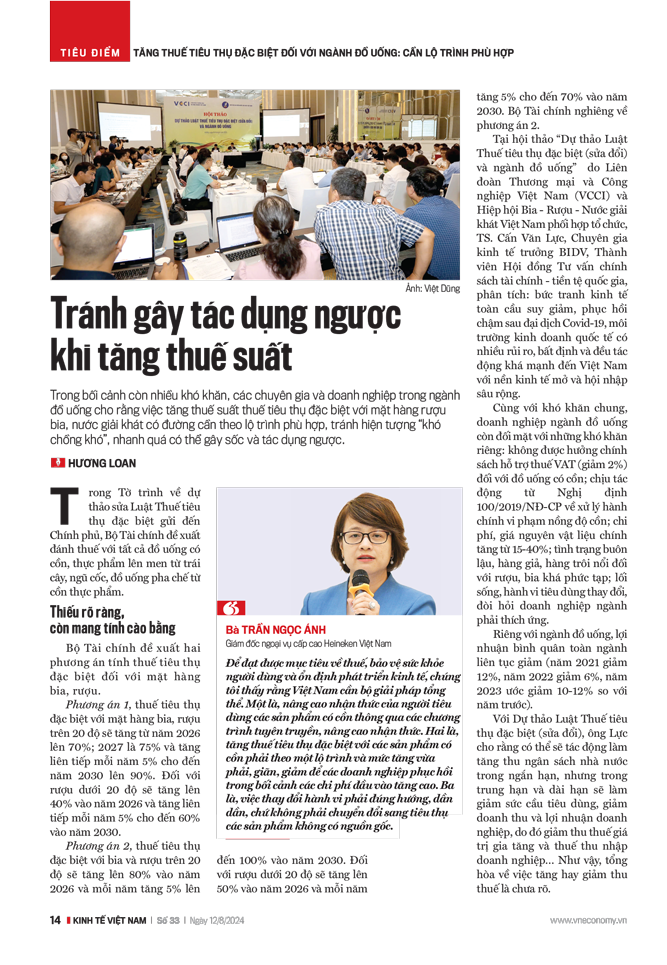
Inefficient State Capital Management in Enterprises: Two Giants Simultaneously Apply for Capital Increase
Minister Ho Duc Phoc is concerned about the lack of attention given to the revision of laws on managing and utilizing state funds for investment in production and business activities in state-owned enterprises, as well as the mechanism of using profits to increase charter capital…
Vietnam’s Top Corporation Generates Nearly $6 Billion in Revenue in Just 2 Months, Continues to Thrive After Setting a Series of Records in 2023
At the recent spring meeting of representative state-owned enterprises on March 3, Mr. Le Manh Hung, Chairman of the Board of Directors of Vietnam Oil and Gas Group (Petrovietnam), stated that most of Petrovietnam’s production targets for the first two months of the year have been completed, exceeding the 2-month plan by 5-30%.
Land Law 2024: Enhancing Investment Advantage in Vietnam
Speaking to TTXVN reporter in Tokyo, Lê Thủy Tiên (Japanese name: Mori Mioka) – Director of Mori Pharmacy Ltd and Mori Healthcare in Japan – considers the recently passed Land Law amendment by the Vietnamese National Assembly as a significant step forward for foreign Vietnamese citizens, encouraging them to venture into investment opportunities in Vietnam.
German Centennial Firm Engages in ‘Partnership of the Decade’ to Accelerate in Beverage Industry
With aseptic filling technology hailed as the invention of the 21st century, GEA embarked on a sustainable journey with Vietnam’s leading beverage player.

